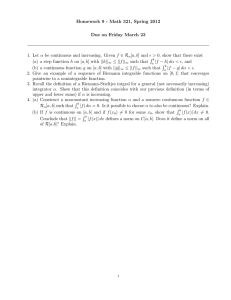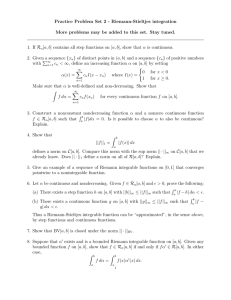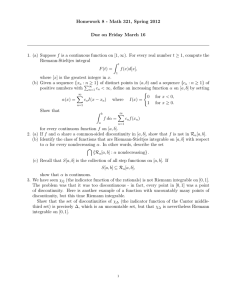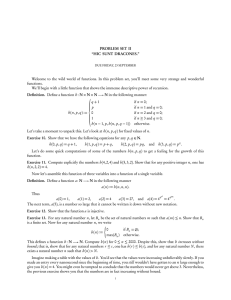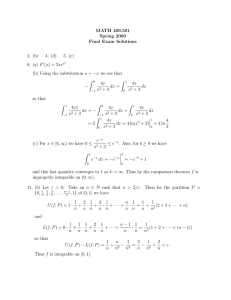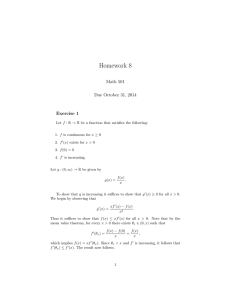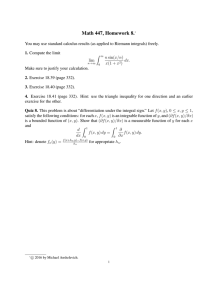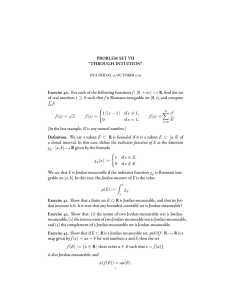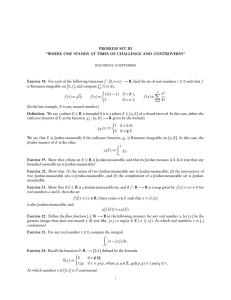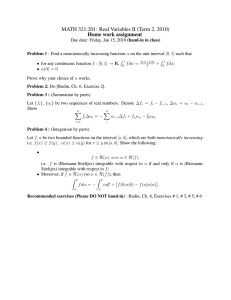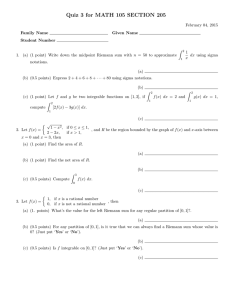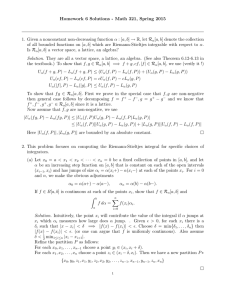Homework 6 - Math 321, Spring 2015
advertisement
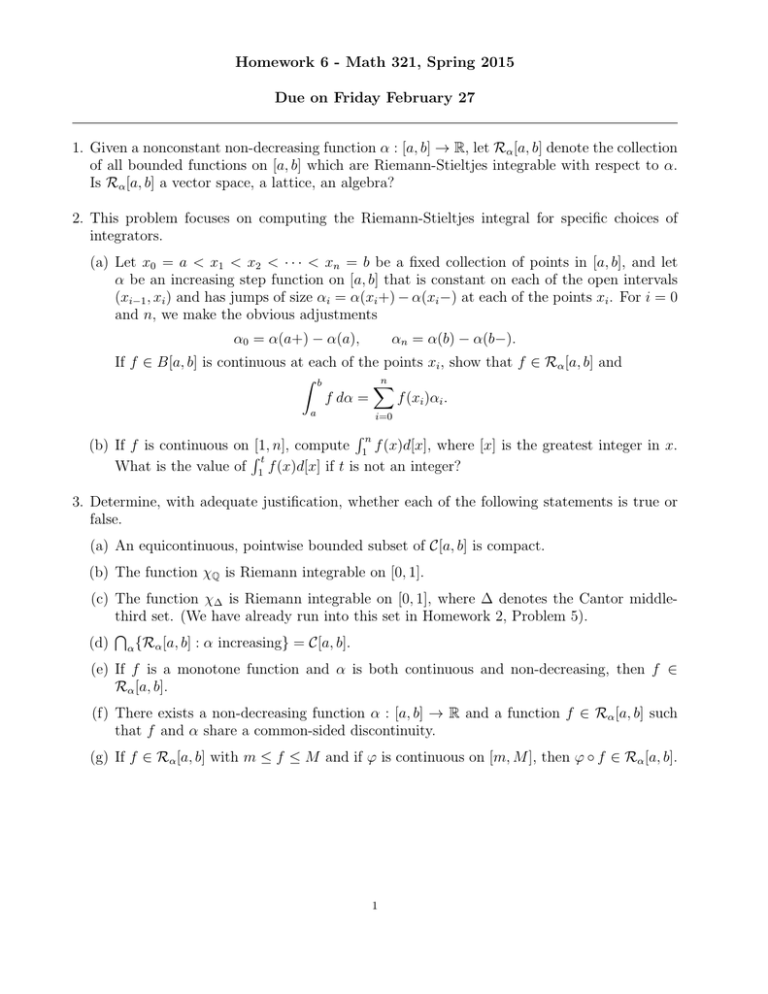
Homework 6 - Math 321, Spring 2015
Due on Friday February 27
1. Given a nonconstant non-decreasing function α : [a, b] → R, let Rα [a, b] denote the collection
of all bounded functions on [a, b] which are Riemann-Stieltjes integrable with respect to α.
Is Rα [a, b] a vector space, a lattice, an algebra?
2. This problem focuses on computing the Riemann-Stieltjes integral for specific choices of
integrators.
(a) Let x0 = a < x1 < x2 < · · · < xn = b be a fixed collection of points in [a, b], and let
α be an increasing step function on [a, b] that is constant on each of the open intervals
(xi−1 , xi ) and has jumps of size αi = α(xi +) − α(xi −) at each of the points xi . For i = 0
and n, we make the obvious adjustments
α0 = α(a+) − α(a),
αn = α(b) − α(b−).
If f ∈ B[a, b] is continuous at each of the points xi , show that f ∈ Rα [a, b] and
Z b
n
X
f dα =
f (xi )αi .
a
i=0
Rn
(b) If f is continuous on [1, n], compute 1 f (x)d[x], where [x] is the greatest integer in x.
Rt
What is the value of 1 f (x)d[x] if t is not an integer?
3. Determine, with adequate justification, whether each of the following statements is true or
false.
(a) An equicontinuous, pointwise bounded subset of C[a, b] is compact.
(b) The function χQ is Riemann integrable on [0, 1].
(c) The function χ∆ is Riemann integrable on [0, 1], where ∆ denotes the Cantor middlethird set. (We have already run into this set in Homework 2, Problem 5).
T
(d) α {Rα [a, b] : α increasing} = C[a, b].
(e) If f is a monotone function and α is both continuous and non-decreasing, then f ∈
Rα [a, b].
(f) There exists a non-decreasing function α : [a, b] → R and a function f ∈ Rα [a, b] such
that f and α share a common-sided discontinuity.
(g) If f ∈ Rα [a, b] with m ≤ f ≤ M and if ϕ is continuous on [m, M ], then ϕ ◦ f ∈ Rα [a, b].
1
